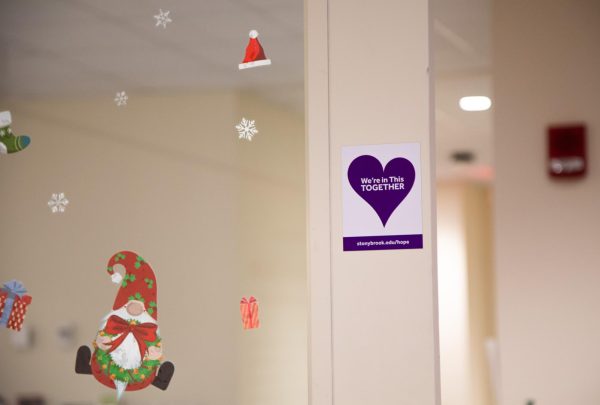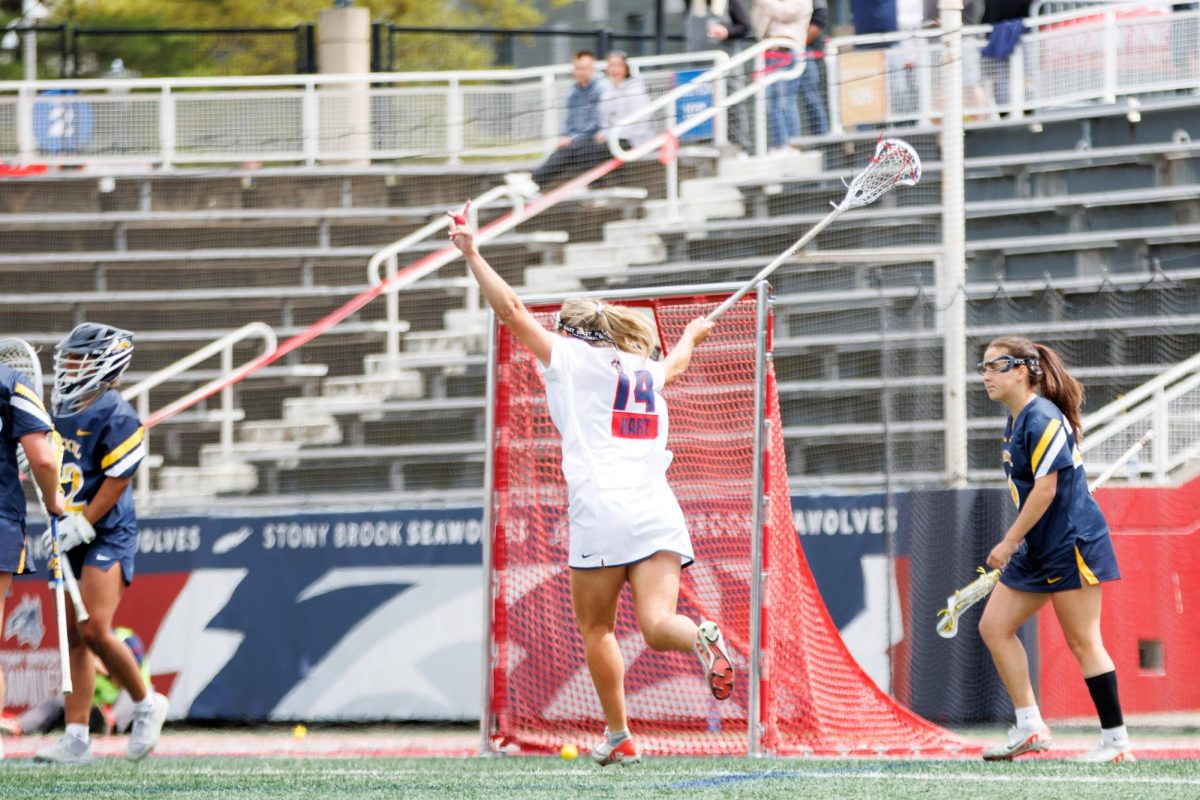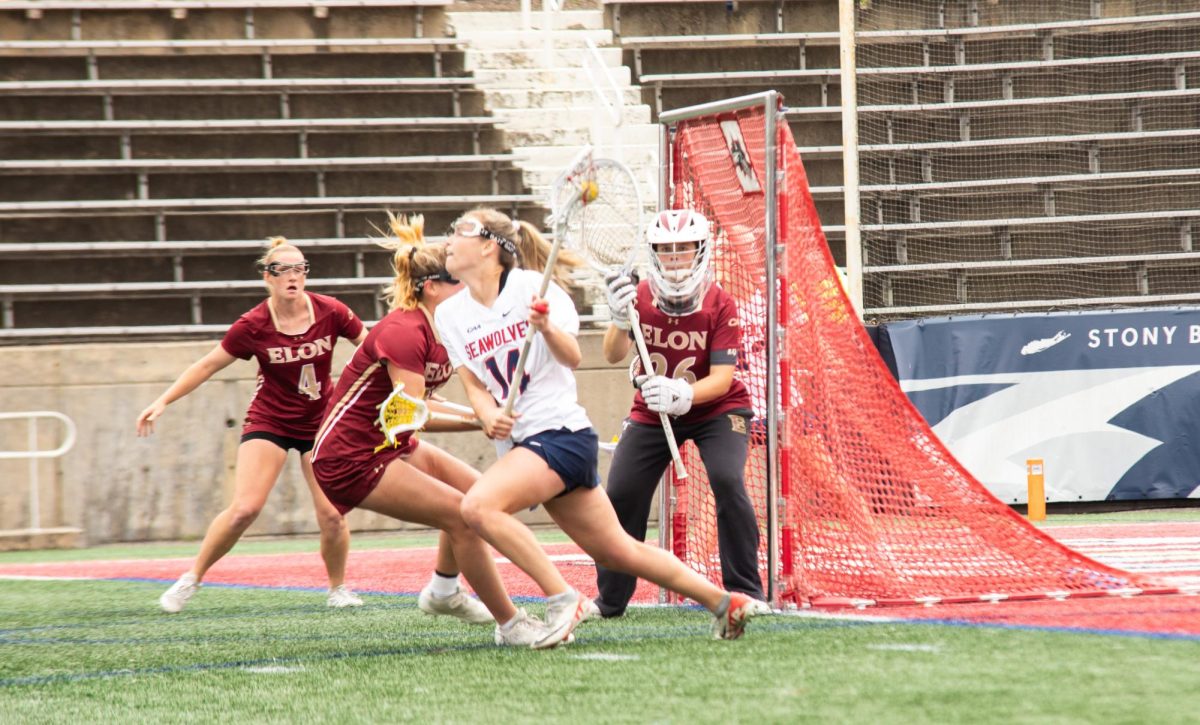
Stony Brook University students and the Undergraduate Student Government (USG) are at the forefront of a new statewide student suicide prevention initiative. Launched in September, the initiative aims to improve access to key crisis resources and services for students demonstrating symptoms of suicidal ideation.
The student-led initiative is centered on amending the Student Suicide Prevention Act (SSPA), an active bill first introduced in New York State (NYS) Legislature in 2021 that is under review in the current session. The legislation would require K-12 schools to implement suicide prevention standards and procedures, instruct school personnel on how to respond to students in suicidal crisis and support survivors and communities in the aftermath of attempted or completed suicides. However, the bill does not currently address colleges and universities as currently written — a major focus of the initiative.
Vignesh Subramanian, a senior biology and psychology double major who organized the initiative, noted that New York is not among the twenty U.S. states that require their colleges and universities to adopt student suicide prevention policies. Seeing the SSPA as an opportunity to implement statewide suicide prevention standards for higher education institutions, Subramanian reached out to USG for support in advocating for state lawmakers to amend the bill. This past Suicide Prevention and Awareness Month, the USG Senate unanimously approved a resolution that calls for the scope of the bill to be expanded to require colleges and universities develop their own student suicide prevention and intervention policies.
“I think we aren’t immune to the existing mental health crisis among students statewide,” Subramanian said to The Statesman. “Stony Brook has been pretty progressive in the preparedness measures it has implemented so far. But we know that not every campus is like ours: there are certainly laggards, and while Stony Brook continues to serve as an example for them, we can always strive to be more prepared ourselves. One life lost to suicide is one too many.”
USG and Subramanian have collaborated to draft a revised bill that includes provisions addressing the needs of students at both public and private colleges and universities and non-public schools, as well as unaddressed high-risk populations. They are aiming to work with state lawmakers to incorporate their proposed provisions into the bill before lawmakers return to Albany in January when the current legislative session resumes. In the meantime, USG’s resolution is to call upon the student leaders of New York colleges and universities to join its coalition in support of the amendments to draw legislators’ attention to the issue.
“On behalf of the Senate, which I oversee, I think all of us were saddened to see that this wasn’t already done [at the state level], that this is something that’s been delayed,” Nistha Boghra, a journalism major and the executive vice president of USG, said. “But this is one of the things that we immediately thought should receive priority, especially because our school has so many amazing mental health resources and others deserve the same support.”
As a result of USG and Subramanian’s outreach efforts, nearly 15 undergraduate student governments at other colleges and universities statewide have expressed their support for the initiative over the past month, approving sister resolutions of their own that express solidarity with USG’s cause. The growing list of supporting undergraduate student governments includes nearly every major university on Long Island, from Hofstra University and Adelphi University to Long Island University and Farmingdale State College — as well as several colleges and universities in New York City.
In early November, Subramanian and USG President Devin Lobosco also secured the support of the Executive Committee of the SUNY Student Assembly (SA), which represents all 64 SUNY institutions. Lobosco raised the subject of the initiative at SUNY SA’s fall conference on Nov. 17, which reinforced support among general assembly members.
The provisions that this coalition of student leaders are pushing for in the SSPA are extensive. The provisions include mandates for colleges and universities to make mental health resources more easily identifiable and accessible, including requiring resident assistants and staff on every campus be trained in either gatekeeper suicide prevention training or mental health first aid.
“Stony Brook University engages in campus-wide initiatives designed to increase awareness of suicide, including educational campaigns, presentations to faculty and staff about warning signs and appropriate actions and training for students and student leaders,” Melissa Woody, collegiate outreach coordinator at the Center for Prevention and Outreach (CPO), said. “[CPO] provides our beautifully diverse campus with a wide range of workshops, drop-in spaces, large events and bystander intervention training to educate, empower and connect students.”
Although Stony Brook offers numerous resources for students in need of external support, some may not be familiar with how to access these resources or experience difficulty utilizing them. Many students prefer more personalized support networks and have trouble finding those on campus.
Among the other provisions included in USG and Subramanian’s proposal are requirements for universities to develop peer support programs for students like commuters who are not often in direct contact with campus-based services. They would also have to develop outreach strategies and offer screening tools for common mental illnesses, such as depression and generalized anxiety disorder. Finally, universities would have to identify and develop partnerships with local providers, so that students can get referrals to off-campus counseling services. Such proposals have already been experimented with by several universities in New York and have been included in laws passed by other states such as Illinois and New Jersey.
As a flagship University in both the SUNY system and among public colleges offering mental health services to students, Stony Brook continues to lead by example — both in the preventative measures it currently administers and in its leaders’ forward-looking proposals. USG and Subramanian believe that progressive leadership will propel their efforts and strengthen the SSPA’s core tenets.
“When Joe [Bisiani] and I presented this proposal to the USG Senate in September, they were fully on board, and they thought it was a great way for us to both take the lead on elevating this issue and also increase collaboration with other campuses,” Subramanian said.
Boghra agreed, noting this initiative is a “game changer” for staff and students alike, as student leaders want to ensure that other NYS colleges have the same mental health support systems and resources as Stony Brook. Announcing the launch of the student-led initiative at CPO’s sixth annual Walk of Hope event this past September, she noted that the initiative received strong support from Dr. Marisa Bisiani of Student Health Services and staff from the Division of Student Affairs. CPO and community members also responded positively to the initiative’s introduction.
“I think [the Walk of Hope] set the stage for what we’re hoping to eventually do, which is hold a public support rally on campus that both mental health groups led by students and cultural clubs representing students from some communities that have traditionally stigmatized reaching out for help with mental health can participate in,” Subramanian said.
According to Woody, at this year’s Walk of Hope, CPO saw more students, faculty and community members in attendance compared to the last few years. CPO fully supports USG and students’ efforts to universally improve suicide prevention policies across NYS colleges and universities.
“There’s always help available, and no matter how our efforts to improve access to crisis resources fare and how lawmakers respond to them, our campus happens to be blessed with a wide range of services that are available to students,” Subramanian said. “So reach out for help, and reach out to peers. Talk to people who you trust and can confide in. We’re in this together.”
On-campus resources:
- Counseling and Psychological Services: Call 631-632-6720. Psychological and psychiatric services for Stony Brook University students.
- CPO: Call 631-632-2748. Depression/Suicide Prevention and Outreach. Providing education with an emphasis on prevention and early intervention of depression and suicide.
- University Police Department: Call 911 using an on-campus phone or 631-632-3333 from off-campus cell phones. Preserving life, maintaining human rights, protecting property and promoting individual responsibility and community commitment.
- TimelyCare: Call 833-4-TIMELY. 24/7 access to no-cost virtual mental health care and on-demand wellness resources. Licensed mental health providers are available to provide care via call or secure video to support you with mental health concerns, connect you with resources, and achieve your health and wellness goals. Register at timelycare.com/stonybrook using your stonybrook.edu email address. TimelyCare is available from anywhere in the United States 24 hours per day, 7 days per week, 365 days a year.
Off-campus resources:
Local Helplines and Centers:
1. DASH: Call 631-952-3333. Diagnostic, Assessment, Stabilization Hub. 24/7 voluntary program for individuals in crisis.
2. Response Crisis Center: Call 631-751-7500. 24-hour crisis intervention hotline and crisis counseling services.
3. NY Project Hope: Call 1-844-863-9314. Visit https://nyprojecthope.org/ for more information.
National Helplines:
1. National Suicide Prevention Lifeline: Call or Text 988. 24-hour crisis intervention and support hotline.
2. The Trevor Project: Call 866-4-U-TREVOR.
3. American Foundation for Suicide Prevention: Call 1-888-333-AFSP.
4. Crisis Text Line: Text HOME to 741-741 to connect with a crisis counselor.
SAMHSA: Call 1-800-662-HELP.
Veterans Crisis Line: Call 1-800-273-8255 and Press 1 or text 838-255
National Sexual Assault Hotline: Call 1-800-656-HOPE.
National Teen Dating Abuse Helpline: Call 1-866-331-9474.
Girls and Boys Town: Call 1-800-448-3000.
Covenant House: Call 1-800-999-9999.











